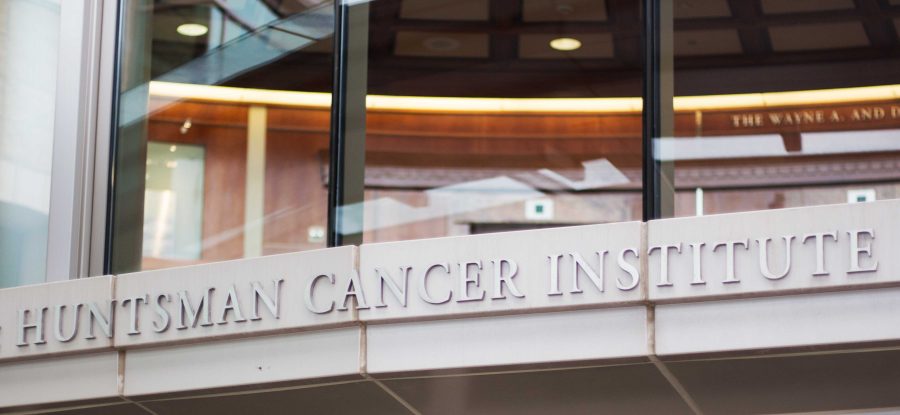The Huntsman Cancer Institute (HCI) is welcoming the first proton cancer treatment technology to the Mountain West by constructing a $31 million University of Utah proton treatment facility. Project planners are targeting 2020 for completion.
Located on the east hillside behind the Huntsman Cancer Research North Building, the facility will consist of three levels, with a lower level equipment room, main level patient entrance and an upper-level walkway connecting the Huntsman Cancer Hospital (HCH) to the facility.
Two proton scanners will be placed in the facility, and there is a chance of expansion in decades to come, according to Dr. Bill Salter, director of radiation oncology.
“Our goal is to make this therapy as accessible as possible. We are proud to be working with leading institutions like Huntsman to incorporate proton therapy into their comprehensive cancer treatment options,” said Tina Yu, chief executive officer of Mevion Medical Systems.
Mevion Medical Systems specializes in proton therapy technology. They provide the smallest compact proton system available, and it can be integrated into existing units.
Through the work of the HCH, HCI and Mevion, proton technology will advance research and provide new therapy for patients. Funding for the $31 million project comes from HCH, HCI and the Huntsman Cancer Foundation. The facility will serve at least 200 patients each year, according to HCI.
Proton therapy is a type of radiation treatment. The scanning beam technology uses magnetic fields to scan a pencil-sized beam of protons back and forth across cancerous tumors. Doctors can select the energy of the beam to control the exit dose. This lessens radiation damage to healthy tissues.
The facility will be situated mostly underground and constructed of concrete. The concrete will act as a shield and protect the installation of the proton technology.
To bring in the heavy equipment required for proton treatment, the construction team has cut switchbacks into the hillside. Any dirt left from construction will be transported via a back-route switchback to avoid debris being left around HCH or HCI. The Bonneville Shoreline has been closed as a safety precaution.
Once construction begins the trail will be closed from 6 a.m. to 6 p.m. and open on the weekends according to Krin Kirijas, architectural project manager.
Jacobsen Construction Company is the general contractor for the project. HCI hired local architectural and engineering firms to put together drawings for the project. Those firms include Architectural Nexus, Van Boerum & Frank Associates, Spectrum Engineers & Associates and Reaveley Engineers & Associates.
Proton therapy has been around for more than 30 years. The decision to install the facility now is due to lower cost and precision, explained Salter.
In the early stages of proton therapy systems, facilities were the size of football fields with former costs totaling up to $300 million, said Yu. She said the size issue meant having to build a separate facility that was often far from the main campus.
Building the proton facility in 2018 avoids higher costs and a displaced location from campus.



Barbara de Serpa • Nov 1, 2018 at 11:07 pm
Excellent article.